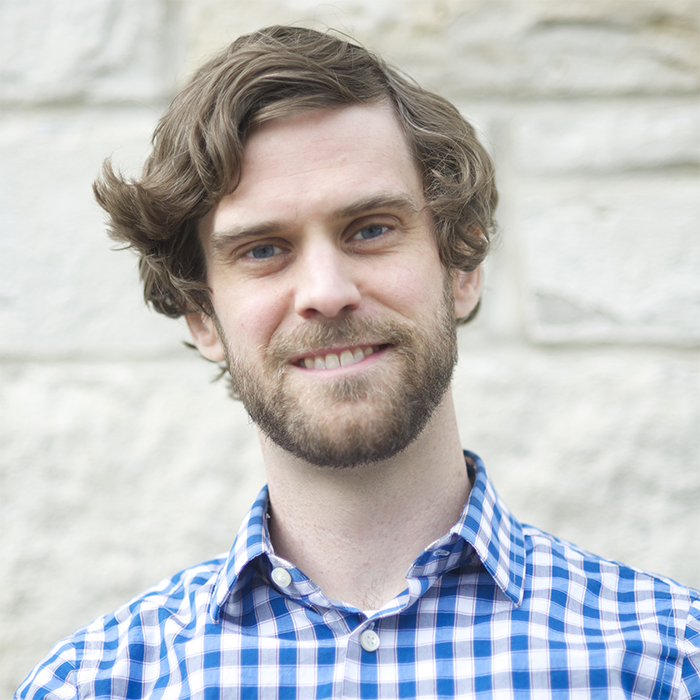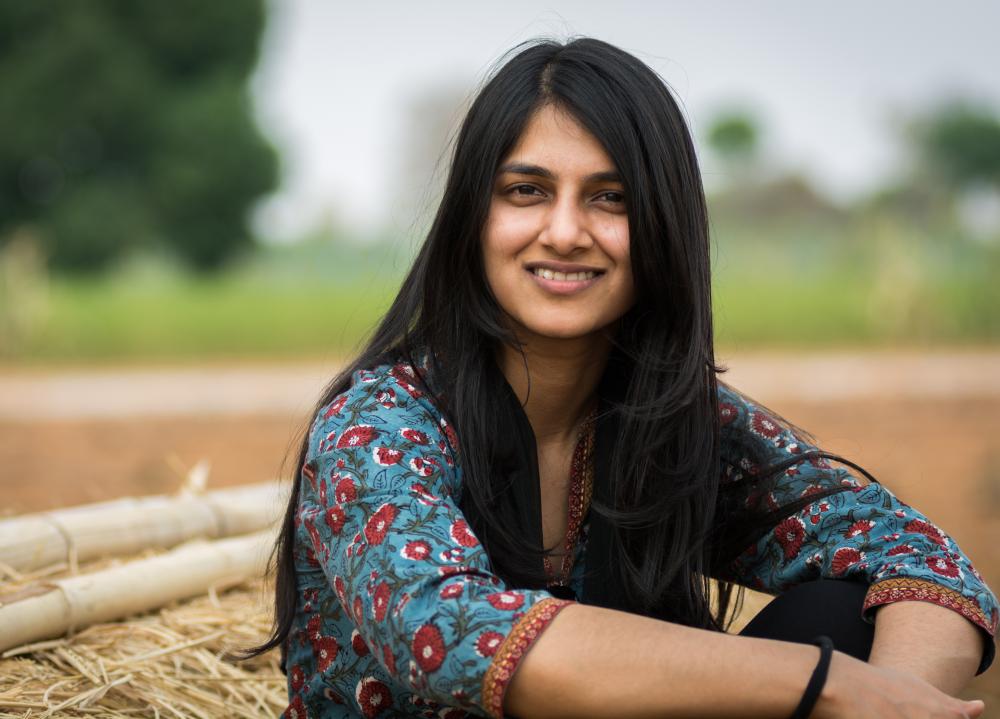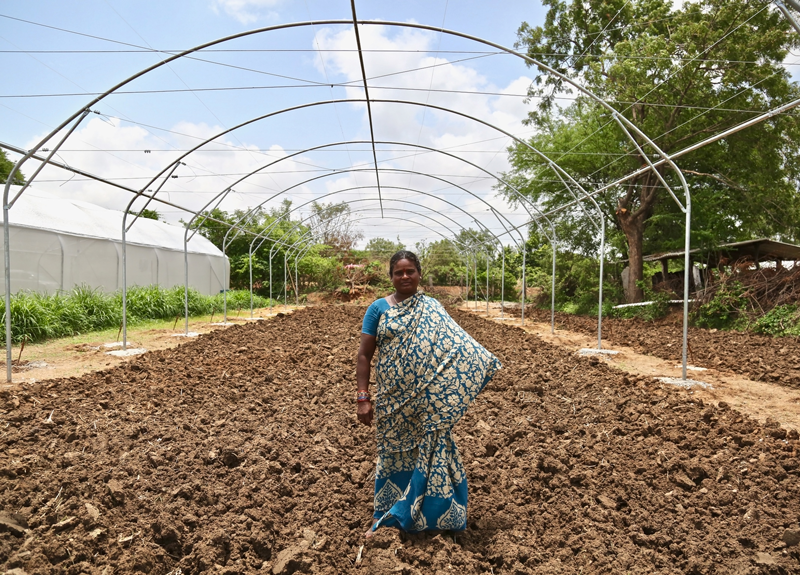Kenya: Best Foot Forward
In Malindi, Kenya, lack of opportunity often prevents women from finding gainful employment. Best Foot Forward (BFF) is a sustainable social enterprise that empowers female African shoe artisans by linking their high-quality goods to US markets. [Note: following publication of this article, Best Foot Forward is now known as RoHo.]
Founder and CEO Caleigh Hernandez (WCAS ’15) developed the idea for her business during two college summers abroad engaging artisans in conversations about their business needs — everything from skills training to support services for working mothers. To launch her business while at Northwestern studying political science and international studies, Hernandez worked with ISEN to pitch her idea to the Clinton Global Initiative University (CGI U) program, an ideas-to-action initiative of the Clinton Foundation for university students. CGI U awarded Hernandez $4,000 and access to mentors to grow her enterprise.
Since its founding in 2015, BFF’s female artisans have seen their wages increase by 125 percent, which is 50 percent more than the industry standard. The company also invests in direct community development initiatives and seeks to provide its artisans with services such as health insurance, childcare, and transportation. BFF currently supports 36 female and 6 male entrepreneurs, as well as one key supplier. In March of 2016, Hernandez received a $25,000 grant from ISEN’s Resnick Family Social Impact Fund to expand BFF’s market reach.
Benin: Project Ouidah
In western Africa, students at a school for refugees lack access to clean water. Because its on-site well is contaminated, the school is instead forced to rely on the delivery of bottled water to its remote location in Ouidah, Benin. But members of the Northwestern chapter of Engineers for a Sustainable World are working to change that.
As part of an initiative known as Project Ouidah, the multidisciplinary team from Northwestern’s McCormick School of Engineering and Applied Science is developing a water filtration system that uses evaporation to purify water from the school’s well. The team is partnering with Bras Ouverts-Open Arms, the NGO that runs the school in Ouidah, and plans to expand the project to also include improvements to the school’s power and waste management infrastructures.
The Arctic: An Ocean of Noise
Life in the world’s oceans is governed by sound. Due to limited visibility in the water, nearly all marine species rely on sound to communicate, navigate, find food, and mate. But increasing levels of noise — from shipping, oil and gas exploration, naval sonar training, underwater construction, and other activities — are drowning out the natural sounds of the ocean. Growing noise pollution has the potential to cause permanent hearing damage in aquatic animals and can disrupt their feeding, breeding, nursing, and communication patterns.
World Wildlife Fund (WWF), one of the world’s leading conservation organizations, and Northwestern Pritzker School of Law’s Environmental Advocacy Center (EAC) are working together to better understand how to safeguard Arctic species from noise pollution. The team is conducting a rigorous analysis of international and national legislation, regulations, treaties, and guidelines of coastal countries that govern the Artic environment including Canada, the United States, Norway, Russia, the Greenland Kingdom of Denmark, and Iceland. The project, led by EAC faculty and graduate student Natale Fuller (Law ’17), is helping WWF build a litigation and advocacy strategy that identifies best legislative and regulatory practices to address these harmful impacts.
Laos: Land and Resource Management
After graduating, Christina Cilento (SESP ’17), former Associated Student Government president, decided to take her Northwestern education halfway around the world. Cilento is stationed in Vientiane, Laos as a Luce Program Scholar, an initiative launched by the Henry Luce Foundation in 1974 to enhance the understanding of Asia among promising leaders in American society.
During her year in Laos, Cilento will be working with communities on resource management, forestry, and land rights in the highlands of the country’s southern region. She is partnering with Village Focus International (VFI), a Lao NGO that aims to empower remote, usually ethnic minority, communities by working with them to sustainably manage their land and resources. Cilento will be collaborating with VFI in their work on boundary mapping, land use planning, and educational outreach related to local land rights.
Germany: A Cleantech Immersion for Young Engineers
Imagine if, at 19 years old, you had the opportunity to engage in in-depth conversation with the leaders of some of the world’s leading companies working in sustainability and green technology. How would that have influenced your academic and career trajectories?
This September, fifteen rising sophomores from Northwestern’s McCormick School of Engineering had this experience as part of an innovative cleantech immersion trip to southern Germany. The inaugural Global Engineering Trek in Sustainability — a program offered jointly by ISEN and Northwestern Engineering Global Initiatives — exposed students to the entire technology lifecycle through visits to basic research laboratories, government organizations, multinational companies, startups, and universities. During the trip to Germany — a country widely recognized as a global leader in sustainability technology—these young engineers gained new insights by being immersed in the fields of renewable energy, water conservation, sustainable manufacturing, and green chemistry, among others.
Around the World: In Search of Sustainable Food Systems
Earlier this year, Margot Zuckerman, a WCAS student, was notified that she had been afforded the opportunity of a lifetime — a 2017 Circumnavigators Travel-Study Grant. The award, funded jointly by Northwestern’s Office of Undergraduate Research and the Chicago chapter of the Circumnavigators Club, provided funds to help send Zuckerman to six countries on four continents during the summer to research food sustainability.
Through her research, Zuckerman sought greater insight into how local food systems can best foster urban food security by increasing the amount, affordability, health, safety, and resilience of the local food supply. In each city she visited, she conducted in-depth interviews with government officials, business owners, NGO administrators, and grocery store shoppers in order to generate a comparative analysis of best practices and challenges associated with local food systems. Zuckerman, who is majoring in environmental sciences and economics, examined a variety of local food systems, including urban agriculture enterprises, direct producer-consumer distribution networks, and community gardens.







